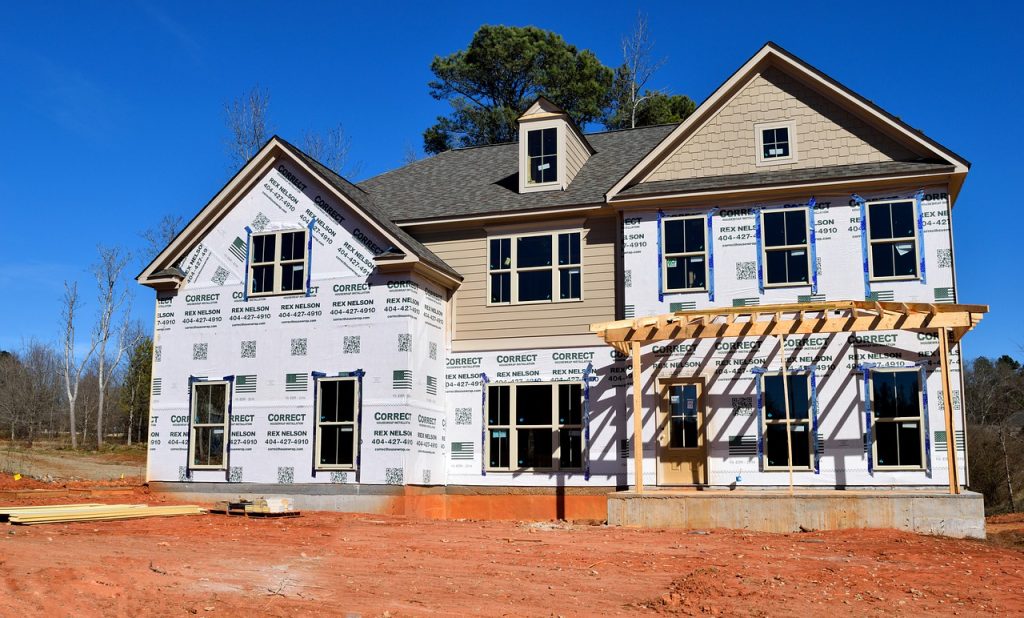Commercial Zoning Laws - A Guide for Business Owners
It pays to know zoning laws in Pennsylvania before buying commercial property.
Commercial zoning laws dictate where to open your business, the activities allowed, and building construction. And they apply regardless of your type of business.
Knowing those laws ensures compliance and sets the stage for success. If unsure, hiring a real estate lawyer near you is wise to prevent problems that could affect your business later on. Our law firm garnered national recognition for real estate litigation, land use, and zoning law.
Commercial Zoning Laws in Pennsylvania
Property zoning divides land into distinct districts to control the use and development of real estate. Municipalities use zoning as a guide for urban growth. It ensures that commercial activities don't infringe on residential neighborhoods and vice versa.
In Pennsylvania, local government establishes zoning laws. Each township, borough, or city adopts zoning ordinances based on specific needs and development goals.
Commercial zoning laws determine:
- Where businesses can operate
- The types of buildings you can construct
- The specific uses allowed on a property
The laws divide the municipality into districts (zoning districts). They prescribe the land uses in each district, such as residential, commercial, industrial, or mixed-use. Zoning maps represent the boundaries of these districts.
The local government's zoning board or commission typically oversees the application and enforcement of zoning laws.
Commercial Real Estate in Pennsylvania
Pennsylvania defines commercial properties as real estate used for business activities. These include many properties, such as retail stores, office buildings, shopping centers, and hotels. It also covers service establishments like restaurants and repair shops.
Although often categorized separately, warehouses and industrial facilities also fall under commercial properties when they support business operations. The Lehigh Valley and Central PA have become hotbeds because critical interstates converge in these regions. According to Lancaster Farming, Eastern and Central Pennsylvania have 25 million square feet of warehouse space under construction.
Understanding what qualifies as commercial property is essential for new business owners as it directly impacts commercial zoning laws and permissible business activities. Zoning laws are powerful tools in the fight against unwanted developments. Law firms identify zoning ordinances that the proposed warehouse project would violate. They could delay and eventually stop construction by challenging the project on these grounds.
How to Determine the Zoning Status of a Property
To determine the zoning status of a property in Pennsylvania, you can take the following steps:
- Zoning Office: You can visit your local office to discover a property's zoning classification. They can provide the zoning map and relevant ordinances to the property.
- Online Resources: Some municipalities may offer access to zoning maps and regulations online. Visit the official website of the city or town near your property location.
- Property Deed: The deed or title of the property sometimes contains information about its zoning classification or any restrictions.
- Real Estate Attorney: You might want to consult with a real estate attorney when purchasing commercial property. They can ensure you have accurate and comprehensive zoning information.
Types of Commercial Zoning
Pennsylvania recognizes several types of zoning, each with its regulations and permitted uses. The most common types include:
- Residential Zoning: Local zoning laws can impose many restrictions affecting your ability to maintain a home business. Some localities restrict property owners' rights to build separate structures. You might also run into restrictions on how much of your home you can use exclusively for your business.
- Commercial Zoning: This encompasses areas designated for business activities, including retail, offices, and services. Understanding the specific types of commercial zoning is crucial for selecting the appropriate location for your business.
- Industrial Zoning: It covers zoning for manufacturing, warehousing, and distribution centers. These areas are typically separate from residential and commercial zones to minimize noise and traffic impact.
- Mixed-Use Zoning: This classification encourages a combination of residential, commercial, and sometimes industrial uses in a single area.
Special zoning districts, such as historic or cultural preservation zones, may also affect business operations and property development.
Commercial Zoning Law Restrictions
Commercial zoning laws impose some restrictions beyond determining the land's use, including lot size, building height, density, and parking requirements. These restrictions ensure developments align with community standards and infrastructure capabilities.
Building codes also set construction and safety standards, affecting everything from structural integrity to fire safety. Compliance with zoning restrictions and building codes is non-negotiable. Otherwise, you face costly fines and legal issues.
Common Zoning Issues for Commercial Properties
You risk fines and other penalties if you violate zoning laws (Title 8). Equally important, you risk having your business shut down.
Here are some of the most common zoning issues for commercial properties:
Non-Conforming Use
Non-conforming use occurs when a property's current use misaligns with zoning ordinances. This issue can happen, for example, when zoning laws change after establishing a business.
Typically, grandfather clauses protect you. However, the new zoning law might prohibit your plan to expand or alter your property. Often, resolving these issues requires applying for a variance or seeking a zoning change.
Parking Requirements
Commercial zoning districts can have parking space requirements based on the business type and size. For example, restaurants might need a specific number of parking spots per square foot of dining area.
Failure to meet these requirements can limit business operations or expansion plans. As a result, you might need to apply for a variance. Alternatively, you can address parking needs through shared agreements or off-site parking solutions.
Signage Restrictions
Although essential for most commercial businesses, commercial zoning laws often regulate signage. For example, they can dictate signs' size, placement, and lighting. You may find yourself in conflict when planning to erect or modify new signs.
Building Height and Setback Limitations
Restrictions on building height and setbacks can impact the design and expansion of commercial facilities. For instance, zoning laws may restrict the distance a building can be from the property line.
That can become particularly challenging if you want to expand your building upwards or when the property is small. Businesses facing this concern can request variances or conditional use permits.
Zoning Amendments and Rezoning
Occasionally, municipalities revise their zoning ordinances or maps. Imposing new restrictions or changing permitted uses can adversely affect commercial properties. Even after establishing your business, you'll need to stay updated on commercial zoning law updates.
Conditional Use Permits
Sometimes, zoning law may prohibit commercial operations but receive a conditional use permit. Generally, obtaining a permit involves a detailed application process and a public hearing. It also will require adherence to specific conditions laid out by the zoning board.
You can seek a variance if you have any of the above concerns. A commercial real estate attorney can help you build a case for one.
How to Get a Variance with Commercial Zoning Laws
A variance is a legal mechanism that allows property owners to deviate from strict adherence to zoning regulations. The process doesn't require an attorney, but you'll have a better chance of winning if you work with an experienced real estate attorney.
Here are the steps to submit a variance:
- Application: Submit a variance application to the local zoning board. The application needs a description of the variance and the reason for it. Generally, you'll also have to pay a fee.
- Notice and Hearing: The zoning board schedules a hearing following the application. It also notifies nearby property owners about the variance that might impact them.
- Hearing: You'll have the opportunity to present your case. You can present supporting evidence and testimony from experts or affected parties.
- Decision: The zoning board decides whether the variance adheres to the public interest and ensures the variety doesn't negatively affect the plan's overall intent.
- Appeal: You can appeal the decision to a higher court if denied.
Consult a Real Estate Attorney Near You
Many can overlook commercial zoning laws with the excitement of purchasing a property for your business. Unfortunately, you risk opening a can of worms that can shutter your business until resolved.
Our real estate attorneys know local ordinances, ensuring you eliminate those risks. So call our law offices if you need a lawyer near you in Bucks, Delaware, Chester, Philadelphia, or Montgomery County, PA. We'll aim to get the results you want while eliminating potential legal logjams.










